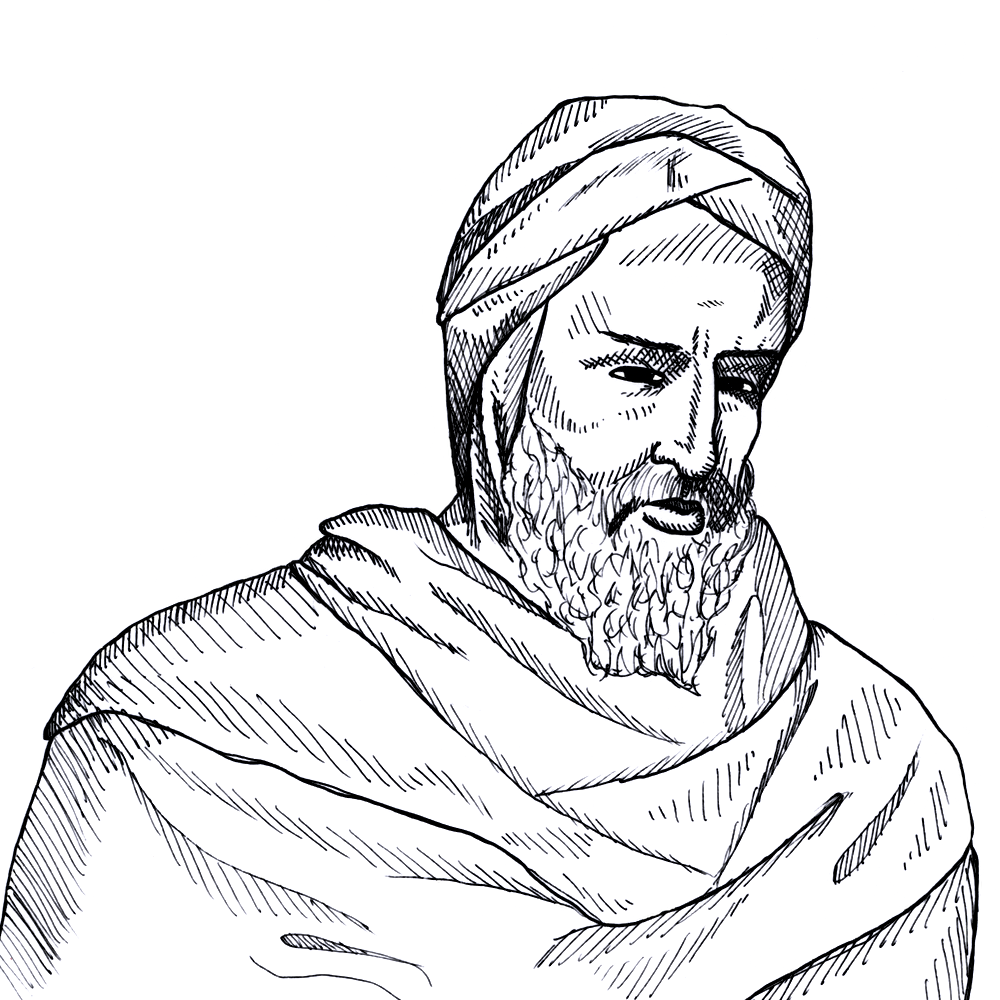
This is the second article in Al Qalam’s “Islamic Thinkers Series”. In this piece Ayesha Omar gives an overview of the work of ibn Rushd, a great thinker and a distinguished figure in the history of Arab and Islamic culture.
Abu’al-Walid Muhammad ibn Ahmad ibn Muhammad ibn Rushd (1126-1198) known in Latin as Averroës is one of the most remarkable Islamic thinkers and philosophers the Muslim world has ever produced. In the Western world Ibn Rushd is regarded as the great synthesizer of the Aristotelean philosophical traditionand a distinguished figure in the history of Arab and Islamic culture. He stands out as an avowed Aristotelian and inheritor of the Greeks and his influence on Latin scholasticism invigorated intellectual development in the West in the late Medieval period.
Ibn Rushd was born in the twelfth century in al-Andalus (Muslim Spain) during the rule of the Almohads (Almuwahids), a politico-religious movement, with the mission of propagating a new reformist version of Islam. Their founder, Muhammed Ibn Tumart, had begun to wield enormous influence amongst the Berber populations in North Africa, creating an expansive territorial empire that stretched from North Africa to Spain. The particular type of reformist ideology posited by Ibn Tumart, the founder of Almohadism, created an environment that enabled the study of philosophy and rational inquiry during Ibn Rushd’s time.
In his early years, Ibn Rushd was noted by most sources as an astute and highly intelligent student who was dedicated to the study of jurisprudence, Arabic, linguistics, theology, philosophy, and medicine. Ibn Rushd’s vast training was soon recognised and he waslater appointed as the grand judge (qadi) of Seville. As a high-ranking state official of Almohad society, Ibn Rushd was also a patron of the courts of the Caliph Abu Yaqub Yusuf, both as an adviser and as the court physician. Another philosopher of this period, Abu-Bakr Ibn Tufayl brought Ibn Rushd to the attention of the Caliph after the Caliph had complained of the obscure nature of Aristotle’s texts which had stimulated interest during this time. The Caliph remarked that he required for someone to undertake a project to explain these books by summarising them and expounding theiraims for then it would be easier for people tograsp their content.
On the Caliph’s instruction then, Ibn Rushd began to develop a corpus of commentaries on Greek Philosophy with the purpose of making these texts more accessible. This was significant at a time when philosophical ideas were regarded with suspicion and many scholars were hesitant to engage in philosophical debates openly. This meetingprovides historical context for the vast number ofcommentaries on Aristotle that Ibn Rushd published with fervour after 1169.
Ibn Rushd’s commentaries on Aristotle (and Plato) range in scope and have been categorised as the short commentaries (jawami), middle commentaries (talkhis) and the long commentaries (sharh), the last of which contains his thoughts that are considered to be his ‘mature’ thoughts.
Ibn Rushd also proceeded to compile three critical works that contain his views on the importance of philosophical study for Muslims. For example, Ibn Rushd’s important reformist text the Decisive Treatise, outlines the legitimacy of the practice of Greek philosophy, and the way it can be harmonised with Islamic Law. This constituted an argument that Greek ideas and the wisdom of the ancient philosophers is not only compatible with Islamic principles, but stands to offer much needed guidance. In the Decisive Treatise Ibn Rushd demonstrated the way in which he saw philosophy and the Law to be aligned. The natural link between philosophy and the Law, which he drew out with meticulous and logical precision, was not set out for arbitrary purposes. Ibn Rushd also offered a fascinating Commentary on Plato’s Republic, in relation to the question of political authority. He believed that Plato’s wisdom on governance and politics ought to be considered as an important source of knowledge for the creation of a virtuous polity that upholds the prescriptions of Islamic Law. Greek Law, he argued, essentially shared a common vision and purpose with Islamic Law, that virtue and happiness for members of a state can only be fostered if the Law is obeyed. In this way Ibn Rushd, drew an indivisible link between ethics and politics, which underlined his conception of political authority.
The death of the Almohad Caliph Abu Yaqub Yusuf, in 1184, saw a change in Almohad political strategy, impacting unfavourably on the life of Ibn Rushd. Amongst the issues that Al-Mansur, the new caliph, contended withwas a strong opposition by the religious orthodoxy to the dangers of ‘free thinking’. Practices like philosophywere severely condemned by many traditionalists, who viewed Greek ideas as detrimental to the preservation of the Islamic social and political order. Unlike his predecessors, Al-Mansur was not able to appease the religious scholars and commissioned the burningof the books of philosophy and other texts which were deemed heretical.
Subsequently, Ibn Rushd was banished and exiled, living his final years in Marrakech. It is not entirely clear why Al-Mansur may have chosen such a harsh rebukefor Ibn Rushd, who was his close advisor and friend. It does, however, emphasise the point of the historical link between the Falsafa (Muslim philosophers) and the manner in which the changing political context at the time impacted on their reception.
Ironically, the efflorescence of Western philosophy in the late medieval period was prompted by Latin Averroism, the doctrine of thought which widely accepted the Latin translations of Ibn Rushd’s ideas, standardly prescribing them as part of the university curriculum. This reception of Ibn Rushd’s philosophy from the late medieval period onwards assisted scholars of the Latin world to genuinely recover the philosophical ideas of the Ancient Greeks, and in particular, Aristotle.
Dr Ayesha Omar is a Senior Lecturer in political theory in the Department of Political Studies at Wits, a Mellon Early Career Scholars Fellow and Research Associate at SOAS (University of London).


